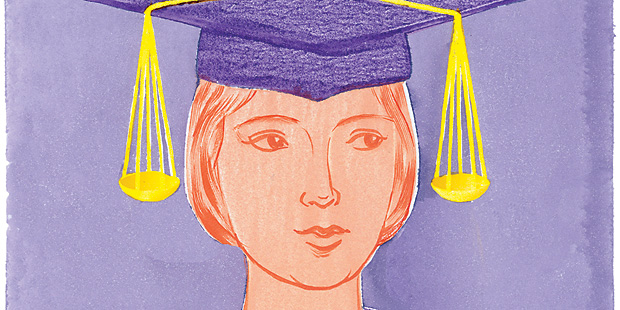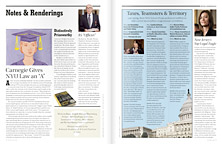Carnegie Gives NYU Law an “A”
Printer Friendly VersionA two-year watershed report on legal education by the Carnegie Foundation for the Advancement of Teaching held up NYU’s clinical legal education as a model approach.
A research team from the Carnegie Foundation visited NYU and 15 other law schools in the United States and Canada in the 1999-2000 academic year to produce its report, “Educating Lawyers: Preparation for the Profession of Law.” In it, NYU’s clinical pedagogy is examined in great detail and praised for how it combines analytical skills with practical training, client relations skills and real-life ethical considerations.
The report includes a profile of NYU’s mandatory first-year Lawyering Program and its focus on simulated tasks such as gathering facts or negotiating a transaction. Peggy Cooper Davis, John S. R. Shad Professor of Lawyering and Ethics and director of the Lawyering Program, said in the report: “It is important that students see expertise in a sense broader than the constant manipulation of a body of rules.”
Clinical legal education has not been the subject of an equally compelling national discussion since the MacCrate Report in 1992, says Randy Hertz, professor of clinical law and director of Clinical and Advocacy Programs for NYU. That study of lawyers’ educational and professional development needs advocated for practical legal-skills training as part of legal education. “The Carnegie Report will lead us to a greater consolidation of clinical methodology into traditional, nonclinical courses and a more conscious focus on helping students gain the skills and values needed for legal practice,” Hertz says. “I think NYU inevitably will play an important role in these developments.”

